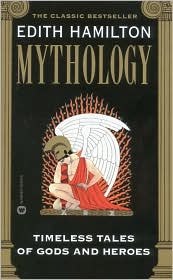The Goddess Inheritance by Aimee Carter (The Goddess Test series)
I lost steam with this series. Initially, I was very excited about this retelling of the Persephone myth, but the plot of each story seemed to become more and more muddled. I found Kate's attraction to Henry to be far-fetched, and the world building also felt somewhat scattered and disorganized. While I enjoyed seeing a new imagining of a myth, ultimately this series did not deliver for me. I think the main highlight for me was Kate's love for her son, something that doesn't often come up in young adult fiction.
2.5 stars
Warnings: Violence, mild innuendo, possibly some mild language
Sever by Lauren DeStefano (The Chemical Garden series)
I think The Chemical Garden trilogy has long stood out for its lovely covers. I also found the subject matter intriguing on multiple levels -- the human race is dying out early due to a failed attempt to genetically engineer a disease-free world. Rhine has been kidnapped and married to a wealthy young man, along with two other "brides," to continue the human race. However, her husband Linden's father, Vaughan, has some sinister intentions.
I think this series is well-done. Lauren Destefano writes vividly. The plot is interesting and fast-paced. The book causes discomfort and introspection with the odd situation of three young women sharing a husband. I definitely enjoyed Sever the most of all the books -- it is lighter, and I feel that we finally have the chance to really understand some of the main characters (especially Cecily). However, for some reason the plot points of these books do not last long in my mind. I definitely enjoy them while I am reading, but they aren't especially memorable for me after the fact.
3.5 stars
Warnings: Mild innuendo, some language, disturbing themes
Reached by Ally Condie (Matched series)
Reached was a final book that I wasn't sure would be satisfying. While I'd enjoyed Matched, Crossed had left me very dissatisfied, and I wasn't sure where Condie was going with the series. I think Reached was better than Crossed. It evaluated some important themes, such as how your heart can exist in two places at once, and whether a revolution will actually bring peace. I also enjoyed the medical aspect of this novel -- it was interesting to read about the research, the mutations of the disease that dominates most of the plot, and the way Cassia's ability to sort plays into everything. I definitely liked it. Again, like Sever, it hasn't really lasted with me, but it was an enjoyable read, and I think the ending was satisfying.
3.5 stars
Warnings: Mildly disturbing themes and violence
Requiem by Lauren Oliver (Delirium series)
The ending to the Delirium trilogy, Requiem, has been heartily disliked by most of the reviewers I know. I approached reading the last book with trepidation. Delirium and Pandemonium had both been powerful and completely devastating, and I wanted some kind of satisfaction at the end of Requiem. I will say that in some ways that resolution is frustrating, but I do think that the ending is right for the trilogy. I won't say more -- I don't want to spoil it -- but I think the end illustrates the entire message of the trilogy.
Ending aside, Requiem was probably my least favorite of the trilogy. Much of the book was spent on the run and strategizing, which generally doesn't hold my interest well. However, I enjoyed the different tensions between all of the characters -- romantic, familial, political, friendships -- they are what truly made this book. I also really loved having Hana's perspective. I loved her character in Delirium and was gratified at her return in Requiem. I certainly loved the trilogy and will probably reread it at some point. (Anyone know if the TV show is going to take off?)
4 stars
Warnings: Violence, language, innuendo
Clockwork Princess by Cassandra Clare (Infernal Devices series)
You guys. I can't be rational about this trilogy. I can't even attempt it. It began with Clockwork Angel, which I thought sounded extremely weird but which enough people encouraged me to read that I gave it a chance. I was shocked at how much I loved it. It continued with Clockwork Prince, where my heartstrings were tugged to the breaking point. I have been so antsy for Clockwork Princess, and I have to say it surpassed all my expectations. It was incredible. The way everything worked out was so satisfying, and yet there were no cop-outs. The characters had to make sacrifices and suffer intense, emotional and physical pain, but the way things worked out ultimately had me regaling my husband with the entire plot (he is a very patient man). I also love the way Cassandra Clare worked in so much literature. The quotes at the beginning of each chapter were perfect, and I also love the way literature defines Will and Tessa's relationship. In some ways, this book is a guilty pleasure, with all of its love triangle drama and gratuitous demon destruction (um, Mr. Lightwood, anyone?), but there is definitely intelligence behind the thrills. And honestly, any book that makes one so full of squee is worth reading, in my opinion. I purposely have held off on The Mortal Instruments until I finished this series, and now I must say that I am dying to dive in (although I will definitely miss the steampunk element of The Infernal Devices).
5 stars
Warnings: Gratuitous demon destruction, some of it gory; a non-explicit bedroom scene, mild language








